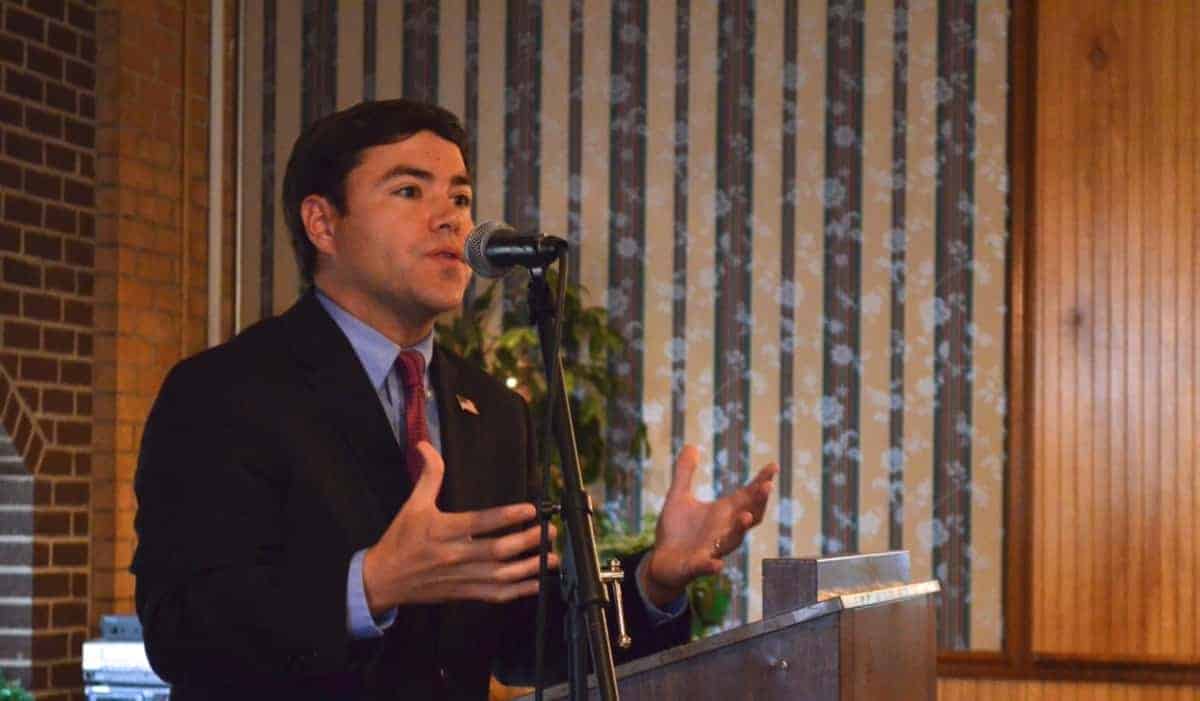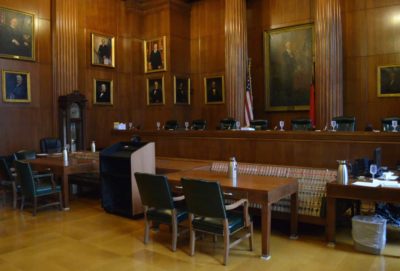State Superintendent Mark Johnson made stops at local rotary clubs and schools in Western North Carolina earlier this week, explaining to state residents why he thinks the state’s education system needs to be transformed.
During a visit to the Henderson Rotary Club in Hendersonville Tuesday, he reminisced of his time as a teacher at West Charlotte High School where he spent two years as part of Teach for America. He told audiences of one student in particular who has stuck with him. A 16-year-old ninth grader wanted to participate in a class lesson, but when he tried, he found he couldn’t read the words.
“He was 16 years old continually failing the ninth grade until he was eventually going to drop out,” Johnson said.
That moment catalyzed in Johnson a desire to make a difference in the way the state educates students, he said.
“I decided then and there, if I ever had the opportunity to be able to make a difference so that we can innovate and transform the system that somehow made that happen, I would,” he said.
Johnson has been engaged in a listening tour across the state since February 2017, visiting state residents at schools and elsewhere around the state to get a sense for what is happening in public education and how people feel about it.
He returned to the common themes of innovation, ownership, and innovation at his stop at in Hendersonville, explaining to the audience that urgency is important because there are still struggling 16-year-old ninth graders out there who need help.
“We have to own the issues that are leading us to those situations,” he said by way of explaining what “ownership” means to him. And he added that innovation is how the state can make its needed changes.
He also took some time to tout some of his achievements, including NC Reads, a program which works with schools and communities to collect books or funds for books for young children, provides a website to connect people with literacy programs, works to make sure young children have books at home, and encourages school attendance.
He stressed the importance of early childhood education, pointing out that many kindergarteners arrive years behind. He explained that most elementary school teachers are growing students one year of growth for each school year, and if students can enter kindergarten on grade level, they will be less likely to fall behind.
“If we get them in on time, on schedule, we can keep them going,” he said.
He also talked about a recent initiative where the state distributes $200 to every K-3 reading teacher in the state. He said he accomplished that by channeling money from the $150 million Read to Achieve program that was being left unspent.
“We found that millions and millions of dollars that was supposed to be going to classrooms never made its way out of the education department,” he said.
Johnson briefly touched on the ongoing legal battle between the State Board of Education and himself to determine who is ultimately in control of state education and the day-to-day workings of the State Department of Public Instruction. He gave a rundown of the case. Johnson won the verdict in an initial three-judge panel ruling. The state Supreme Court has heard oral arguments but has not yet issued a verdict. Johnson said he is not letting the uncertainty stop him.
“Regardless, I’m working to lead in education,” he said.



